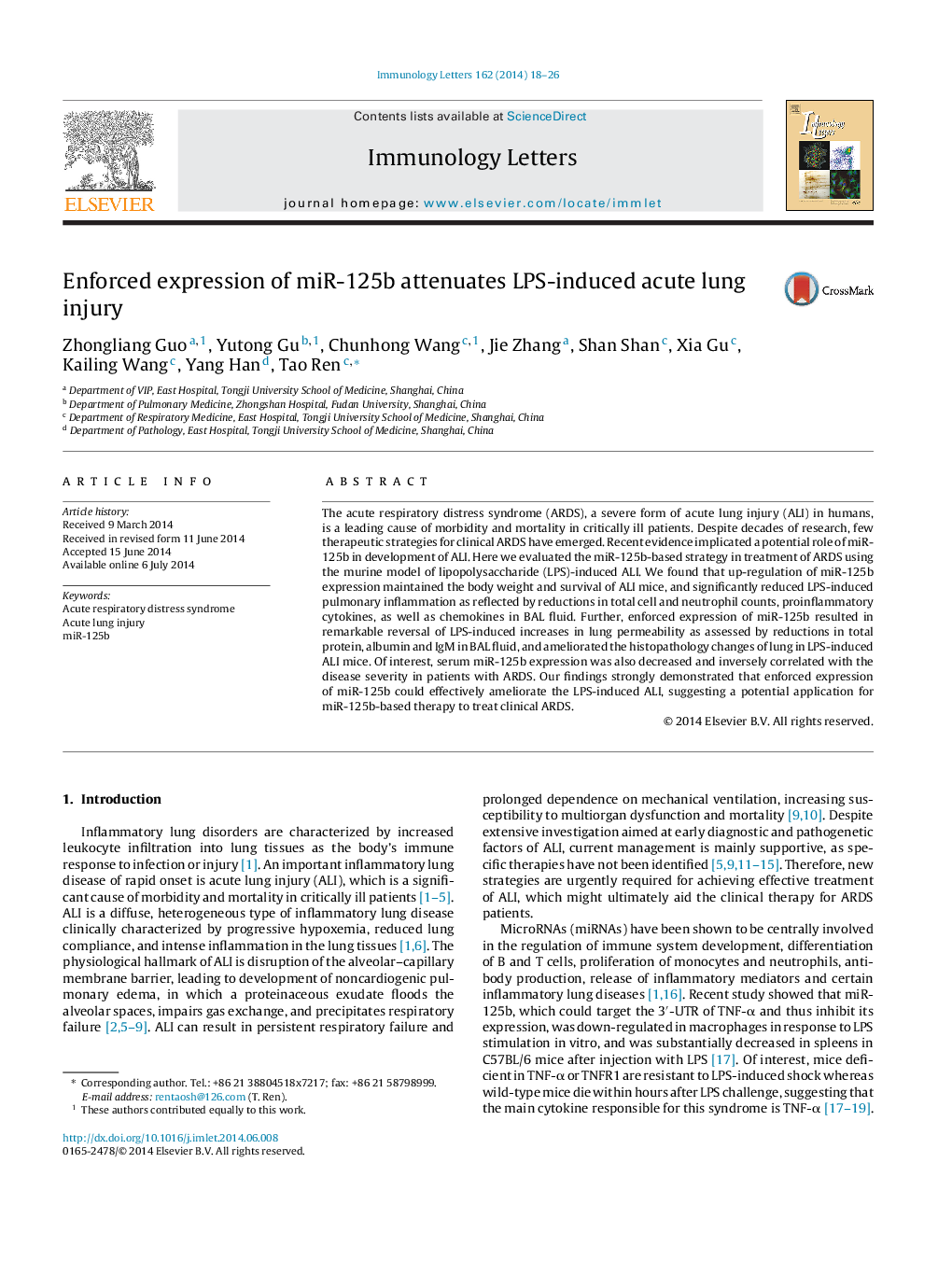| Article ID | Journal | Published Year | Pages | File Type |
|---|---|---|---|---|
| 6117177 | Immunology Letters | 2014 | 9 Pages |
Abstract
The acute respiratory distress syndrome (ARDS), a severe form of acute lung injury (ALI) in humans, is a leading cause of morbidity and mortality in critically ill patients. Despite decades of research, few therapeutic strategies for clinical ARDS have emerged. Recent evidence implicated a potential role of miR-125b in development of ALI. Here we evaluated the miR-125b-based strategy in treatment of ARDS using the murine model of lipopolysaccharide (LPS)-induced ALI. We found that up-regulation of miR-125b expression maintained the body weight and survival of ALI mice, and significantly reduced LPS-induced pulmonary inflammation as reflected by reductions in total cell and neutrophil counts, proinflammatory cytokines, as well as chemokines in BAL fluid. Further, enforced expression of miR-125b resulted in remarkable reversal of LPS-induced increases in lung permeability as assessed by reductions in total protein, albumin and IgM in BAL fluid, and ameliorated the histopathology changes of lung in LPS-induced ALI mice. Of interest, serum miR-125b expression was also decreased and inversely correlated with the disease severity in patients with ARDS. Our findings strongly demonstrated that enforced expression of miR-125b could effectively ameliorate the LPS-induced ALI, suggesting a potential application for miR-125b-based therapy to treat clinical ARDS.
Related Topics
Life Sciences
Immunology and Microbiology
Immunology
Authors
Zhongliang Guo, Yutong Gu, Chunhong Wang, Jie Zhang, Shan Shan, Xia Gu, Kailing Wang, Yang Han, Tao Ren,
